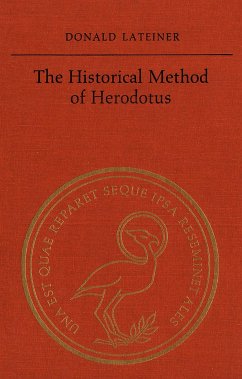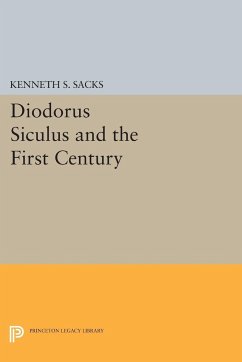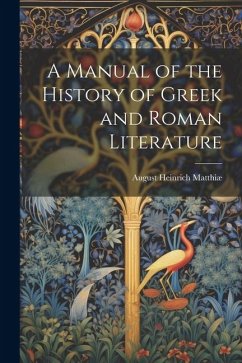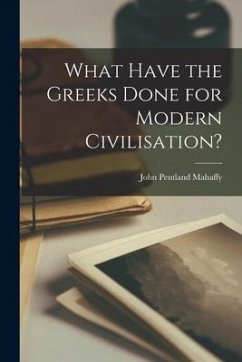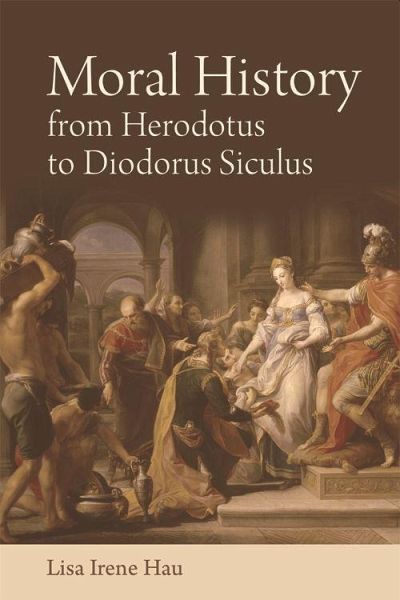
Moral History from Herodotus to Diodorus Siculus
Versandkostenfrei!
Versandfertig in über 4 Wochen
40,99 €
inkl. MwSt.
Weitere Ausgaben:

PAYBACK Punkte
20 °P sammeln!
'Hau deploys the overt moralising of the Hellenistic historians to illuminate the more implicit and thought-provoking moralising of their Classical forebears. Among other questions she asks: does moral didacticism make for bad historiography? Was it simply a lens for viewing events, or could it drive wholesale invention?' Emily Baragwanath, The University of North Carolina at Chapel Hill An investigation of moral lessons and moral-didactic techniques in ancient Greek historiography Why did human beings first begin to write history? Lisa Irene Hau argues that a driving force among Greek histori...
'Hau deploys the overt moralising of the Hellenistic historians to illuminate the more implicit and thought-provoking moralising of their Classical forebears. Among other questions she asks: does moral didacticism make for bad historiography? Was it simply a lens for viewing events, or could it drive wholesale invention?' Emily Baragwanath, The University of North Carolina at Chapel Hill An investigation of moral lessons and moral-didactic techniques in ancient Greek historiography Why did human beings first begin to write history? Lisa Irene Hau argues that a driving force among Greek historians was the desire to use the past to teach lessons about the present and for the future. She uncovers the moral messages of the ancient Greek writers of history and the techniques they used to bring them across. Hau also shows how moral didacticism was an integral part of the writing of history from its inception in the 5th century BC, how it developed over the next 500 years in parallel with the development of historiography as a genre, and how the moral messages on display remained surprisingly stable across this period. For the ancient Greek historiographers, moral didacticism was a way of making sense of the past and making it relevant to the present. But this does not mean that they falsified events: truth and morality were compatible and synergistic ends. Lisa Irene Hau is Lecturer in Classics at the University of Glasgow. Cover image: Continence of Scipio, Pompeo Girolamo Batoni, c.1771-72. The State Hermitage Museum, St. Petersburg. Photograph (c) The State Hermitage Museum/photo by Vladimir Terebenin Cover design: [EUP logo] edinburghuniversitypress.com ISBN 978-1-4744-1107-3 Barcode





